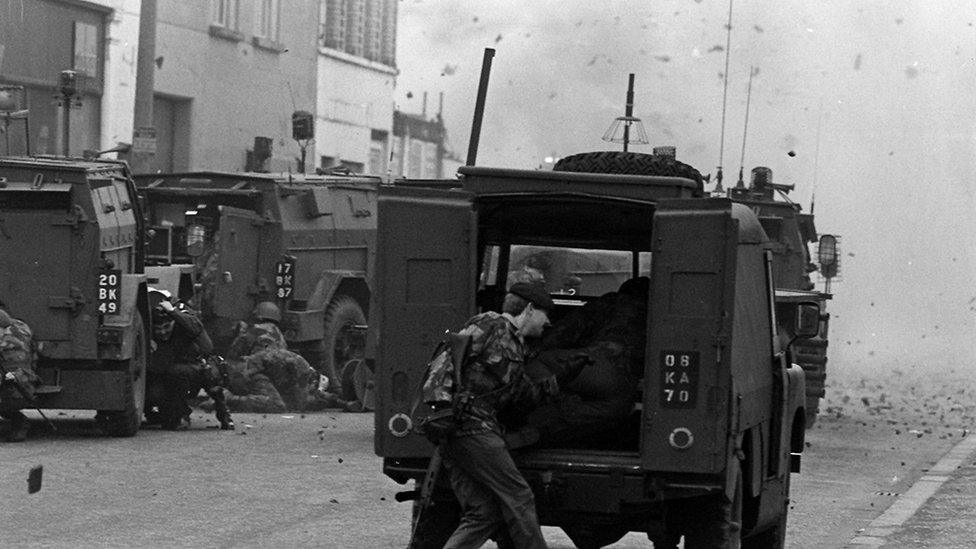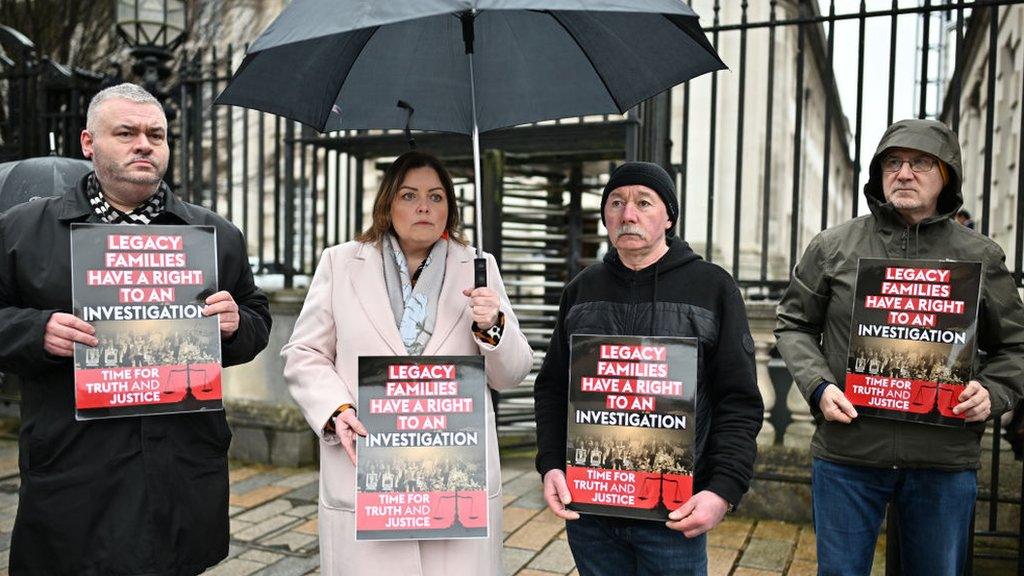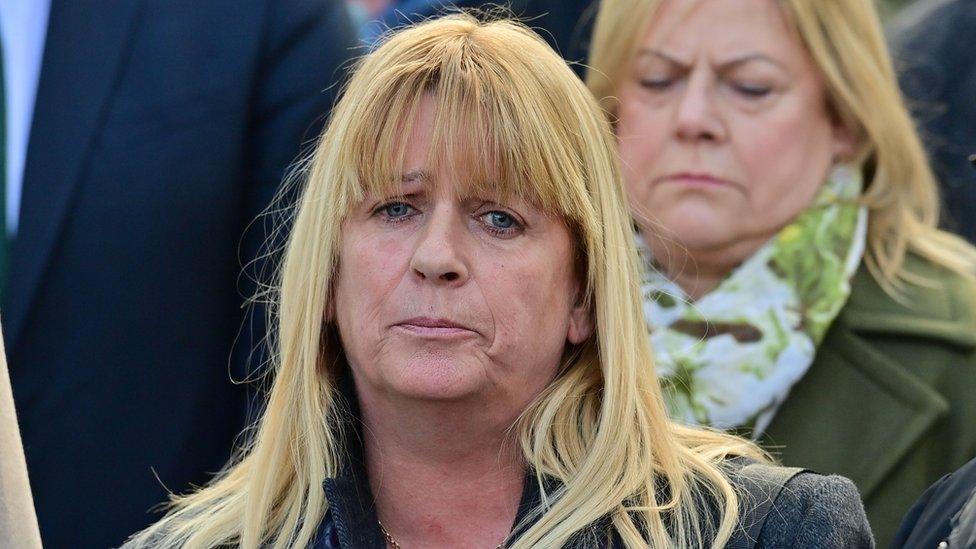NI Troubles: Government appeals High Court ruling on Troubles Act
- Published

The UK government is to appeal a High Court ruling which found part of its controversial Legacy Act breaches human rights laws.
Last month the High Court in Belfast delivered its ruling on a conditional amnesty clause for Troubles-era crimes.
This is being challenged by the Northern Ireland Office (NIO).
Opponents brought the legal challenge on several grounds, including the immunity aspect, which was passed by Parliament in September.
'Committed to implementing the Legacy Act'
The act involved a conditional amnesty for people suspected of crimes committed during the Troubles and introduces a ban on inquests and future civil actions related to the Troubles.
A case against the act was brought forward by relatives of victims and the survivor of a shooting.
A government spokesman said: "We remain committed to implementing the Legacy Act and delivering the Independent Commission for Reconciliation and Information Recovery (ICRIR) to provide better outcomes for victims and survivors of the Troubles by giving them more information about what happened to their loved ones."
Northern Ireland Secretary Chris Heaton-Harris had previously said he was committed to implementing the act.
He added it was a "complex case" that was likely to lead to further action in higher courts.
Ireland case against UK
Separately, the Irish government is also taking a case against the UK at the European Court of Human Rights in Strasbourg.
When the High Court ruled that the Legacy Act breached European Human rights the Tánaiste (Irish deputy prime minister) Micheál Martin said he was "not surprised".
He claimed it "reflects and underpins" the course of action which the Irish government has taken.
What is the Northern Ireland Troubles Act?
The act, which came into effect in September, will end future civil litigation and inquests into deaths which occurred during more than 30 years of violence in Northern Ireland, known as the Troubles.
The government has said the legislation, which applies to all former members of the security forces and ex-paramilitaries, is an attempt to draw a line under the events of the past.
It has repeatedly stated the new act is, in its view, human rights compliant.
Prosecutions that are currently ongoing will continue to conclusion. However inquests will end in May unless they have reached the point of delivering findings.
It is also likely to limit investigations, which in future would be undertaken by the ICRIR.
A number of legal challenges have been brought by victims' groups and the families of people killed or injured during the Troubles.
Related topics
- Published28 February 2024

- Published20 December 2023

- Published21 November 2023

- Published19 September 2023
